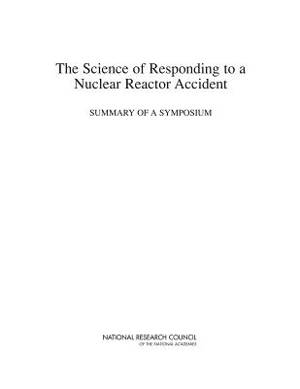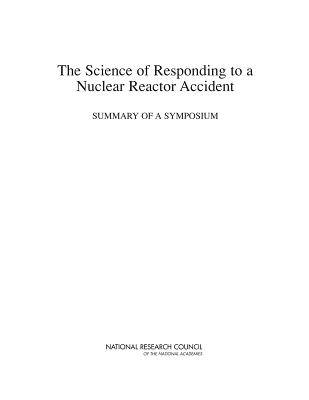
- Retrait gratuit dans votre magasin Club
- 7.000.000 titres dans notre catalogue
- Payer en toute sécurité
- Toujours un magasin près de chez vous
- Retrait gratuit dans votre magasin Club
- 7.000.0000 titres dans notre catalogue
- Payer en toute sécurité
- Toujours un magasin près de chez vous
The Science of Responding to a Nuclear Reactor Accident
Summary of a Symposium
National Research Council, Division on Earth and Life Studies, Nuclear and Radiation Studies BoardDescription
The Science of Responding to a Nuclear Reactor Accident summarizes the presentations and discussions of the May 2014 Gilbert W. Beebe Symposium titled "The Science and Response to a Nuclear Reactor Accident". The symposium, dedicated in honor of the distinguished National Cancer Institute radiation epidemiologist who died in 2003, was co-hosted by the Nuclear and Radiation Studies Board of the National Academy of Sciences and the National Cancer Institute. The symposium topic was prompted by the March 2011 accident at the Fukushima Daiichi nuclear power plant that was initiated by the 9.0-magnitude earthquake and tsunami off the northeast coast of Japan. This was the fourth major nuclear accident that has occurred since the beginning of the nuclear age some 60 years ago. The 1957 Windscale accident in the United Kingdom caused by a fire in the reactor, the 1979 Three Mile Island accident in the United States caused by mechanical and human errors, and the 1986 Chernobyl accident in the former Soviet Union caused by a series of human errors during the conduct of a reactor experiment are the other three major accidents. The rarity of nuclear accidents and the limited amount of existing experiences that have been assembled over the decades heightens the importance of learning from the past.
This year's symposium promoted discussions among federal, state, academic, research institute, and news media representatives on current scientific knowledge and response plans for nuclear reactor accidents. The Beebe symposium explored how experiences from past nuclear plant accidents can be used to mitigate the consequences of future accidents, if they occur. The Science of Responding to a Nuclear Reactor Accident addresses off-site emergency response and long-term management of the accident consequences; estimating radiation exposures of affected populations; health effects and population monitoring; other radiological consequences; and communication among plant officials, government officials, and the public and the role of the media.
Spécifications
Parties prenantes
- Auteur(s) :
- Editeur:
Contenu
- Nombre de pages :
- 52
- Langue:
- Anglais
Caractéristiques
- EAN:
- 9780309316590
- Date de parution :
- 08-01-15
- Format:
- Livre broché
- Format numérique:
- Trade paperback (VS)
- Dimensions :
- 211 mm x 274 mm
- Poids :
- 136 g

Les avis
Nous publions uniquement les avis qui respectent les conditions requises. Consultez nos conditions pour les avis.






